This editorial was in the Boston Globe this week. It brings home the point of fear with prenatal diagnosis. Basic, primal fear. Fear of the unknown and the uninformed that result in termination of a baby with Down syndrome. I said it in my chapter in the GIFTS book that Ms. Beckham references in her article, that I am so, so thankful that we chose- yes chose as I am pro-choice - to not have invasive prenatal testing when I was pregnant with Nash. I might have been caught up in this fear. We made our choice, a choice to have Nash. We thought through the options we were given at the time prenatal testing was brought up by our OB. We chose- Nash. If you are reading this because you did a search for markers for Down syndrome (nuchal fold thickening, cardiac anomaly, Duodenal Atresia, hyperechogenic Bowel, bilateral renal pyelectasis, brachiocephaly, and choroid plexus cysts femur or humerus length below the fifth percentile, pleural effusion, intracardiac echogenic foci among some) and facing a prentatal diagnosis of trisomy 21 please do your baby a favor. Meet other parents of children with Down syndrome. Those that have had benefits of the federal law IDEA and now have their children included in regular classrooms, enjoying parties and sports activities, and living life. Talk to those that have accurate information on the health issues that might, yes, might, be associated with your unborn child. I say might because our son is very healthy, and many, many are that have Down syndrome.
Call your local Ds chapter or NDSS for a new parent packet and more information. Or email me. Don't make a decision based on fear of the unknown.
____________________________________
BEVERLY BECKHAM
Lucy's learning. Are doctors?
The Boston Globe
February 4, 2007
When I brush my granddaughter Lucy's hair and put it in a ponytail, I always kiss the back of her neck. And she giggles. She is 3. She talks. She dances. She goes to school. She plays house and tea, and kickball and follow the leader. She loves books and "Bambi" and church and playing with her cousin Adam.
Lucy has Down syndrome. She looks and acts more like a 2-year-old than a 3-year-old. But is this so awful? Don't we say, "Children grow up too fast"? Lucy isn't growing up too fast. She's taking her time.
She had heart surgery when she was 2 months old. It was awful, but she survived. And so did we. Hospitals are full of children with problems. Should they all be eliminated before they are born? Future screening tests may make this possible.
Imagine if doctors told every parent all the things that could happen to their child. He might get cancer at 1, or diabetes at 2. Or asthma; it's rampant, you know. Or encephalitis. Or meningitis. He could lose his sight, his hearing, his ability to walk, to talk. He could have an allergy and bite into a peanut butter sandwich and die at school one day.
Some women would choose not to have children.
For decades, doctors frightened women into believing that babies with Down syndrome were better off in institutions. They can't learn, they told women. They'll ruin your life. Pretend you never had him. And because doctors knew best, many women did.
Of course, now we know these doctors were wrong.
They continue to be wrong. Now they're identifying Down syndrome in the womb so that these children don't have to be born.
In December, the American College of Obstetricians and Gynecologists gave its imprimatur to a simple new test that screens for Down syndrome in the first trimester of pregnancy.
Down syndrome, also known as Trisomy 21, is a genetic condition in which an extra chromosome alters an individual's physical and mental development. Women 35 and older are routinely screened later in a pregnancy. But the screening has many false positives, so to be certain, women have amniocentesis. Some 85 percent abort when told that their baby has Down syndrome. That's how frightened pregnant women are.
The new screening is a blood test combined with an ultrasound, which measures the back of the fetal neck. Thickness there is a marker of Down syndrome. I kiss Lucy's neck and think of this.
Women abort babies with Down syndrome because they are afraid. They are afraid of mental retardation. They are afraid of stares and "We're sorrys." They're afraid their child won't go to a prom. They're afraid of everything. And too many medical professionals don't assuage that fear. They stoke it.
Most doctors are unduly negative when diagnosing Down syndrome. Two surveys of more than 1,000 mothers conducted by Dr. Brian Skotko of Children's Hospital and Boston Medical Center document this. One mother told how her genetic counselor "showed a really pitiful video first of people with Down syndrome who were very low tone and lethargic-looking and then proceeded to tell us [in 1999] that our child would never be able to read, write, or count change." Information that is not only negative, but wrong.
People fear what they don't know. And people, doctors included, don't know enough about Down syndrome.
A little known book, "Gifts," may change this. Subtitled "Mothers Reflect on How Children with Down Syndrome Enrich Their Lives," it is the work of 63 women who were afraid, too, before they brought their children home and loved them.
A collection of short essays, it could be called "If I knew then what I know now." It is affirming, honest, current, and, unfortunately, out of print. But Woodbine House in Bethesda, Md., is reissuing it in July, and every member of the American College of Obstetricians and Gynecologists should read it.
Because doctors need to learn what these women know. That children with Down syndrome are just children, full of life and curiosity and wonder. Some may have health problems, but the problems are treatable. They grow at a slower pace, and statistically may have shorter life spans , but so what? They're turtles, not hares. They're in the race with everyone else, but they go at their own pace.
And they will get to the finish line in their own good time -- if they are given the chance.
Canton resident Beverly Beckham can be reached at bbeckham@globe.com. Listen to Beverly read and talk about her columns in her weekly podcast at boston.com/news/podcasts.
© Copyright 2007 The New York Times Company |

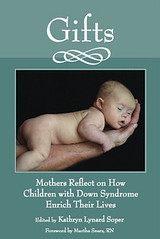
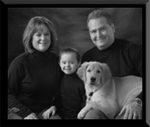
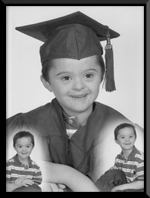

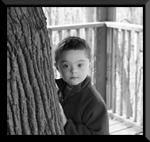

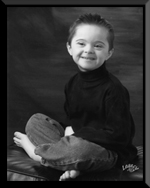

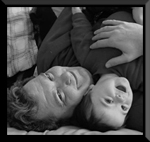






0 comments:
Post a Comment